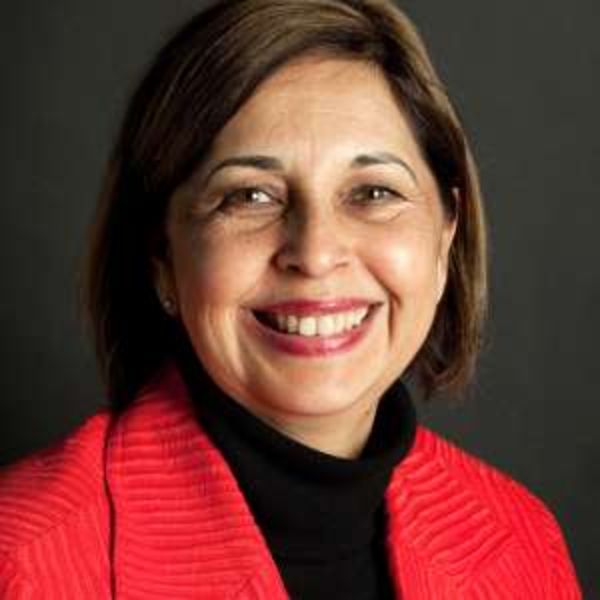Dr. Katherine Flores has developed an innovative model to prepare San Joaquin Valley students for success in school and medical careers, while cultivating a more diverse healthcare workforce.
In Fresno County, located in the heart of California’s Central Valley, about 50 percent of the residents — but only 5 percent of the doctors — are Latino. That glaring cultural divide results in potential misunderstandings between doctor and patient that can translate to poorer health outcomes.
As the child of migrant farmworkers, Dr. Katherine Flores witnessed the often tragic consequences of this divide first hand, including a grandfather who lost his leg to diabetes and infection. Today, those experiences inform her work as director of the Latino Center for Medical Education and Research in Fresno, where she helps prepare local students for medical careers while encouraging them to come home to practice.
In 1999, working out of the University of California, San Francisco’s Fresno campus, Dr. Flores established the Doctors Academy, which recruits students from low-income families beginning in seventh grade, and supports them through high school and college with special classes, tutoring, and work experience.
The evidence is very clear that increasing diversity of the health care workforce will improve access and reduce health care disparities.
Dr. Katherine Flores
Flores explains, “The evidence is very clear that increasing diversity of the health care workforce will improve access and reduce health care disparities.”
The Academy focuses on building self confidence, teaching students how to study and preparing them for the rigors of college and medical school. It also educates parents (most of whom never attended college), offering help in securing financial aid and advice about how to support their child’s academic success.
In a school district where a quarter of students drop out by senior year, the Doctors Academy is achieving impressive results. Every student in the program has graduated from high school, and every student who has finished the program has been accepted to college. The program’s alumni have gone on to medical school at Brown University and the University of California, San Francisco, among others.
Dr. Flores’ own experience growing up helped shape her career and social activism. Raised by Mexican immigrant grandparents, she started working in the fields as a young child. Many years later, her hard work in high school led to her admission to Stanford University, but once there, she struggled to keep up, and nearly quit. Support from two like-minded classmates helped pull her through, and she vowed to return to the Central Valley to help smooth the way for others following in her footsteps.
Today, the Doctors Academy is doing just that, preparing students to succeed even at Ivy League schools and providing them with mentors and other resources to make the adjustment. At the same time, the Academy instills a sense of community service in its students so that they, too, will return to the region one day as doctors, nurses, and dentists.
“We teach our kids early on to value who they are and where they came from, so that when they become health care professionals, they will return to their communities,” says Flores.
Flores says that by supporting high school pathways that are academically challenging and focused on the health professions, California could improve student achievement and expand career choices for many more young people.
For promoting a more diverse health care workforce, while improving the educational opportunities of disadvantaged students, Dr. Katherine Flores is a recipient of a 2010 James Irvine Foundation Leadership Award.
Video by Talking Eyes Media
Primary Regions Served
The written profile and video reflect the work of the leader(s) the year they received a Leadership Award. Please contact the leader(s) for current information.
